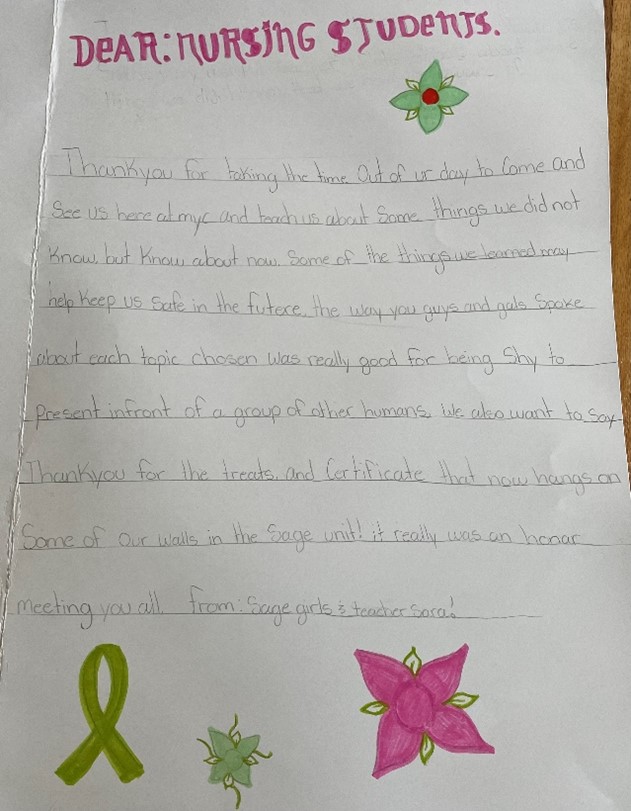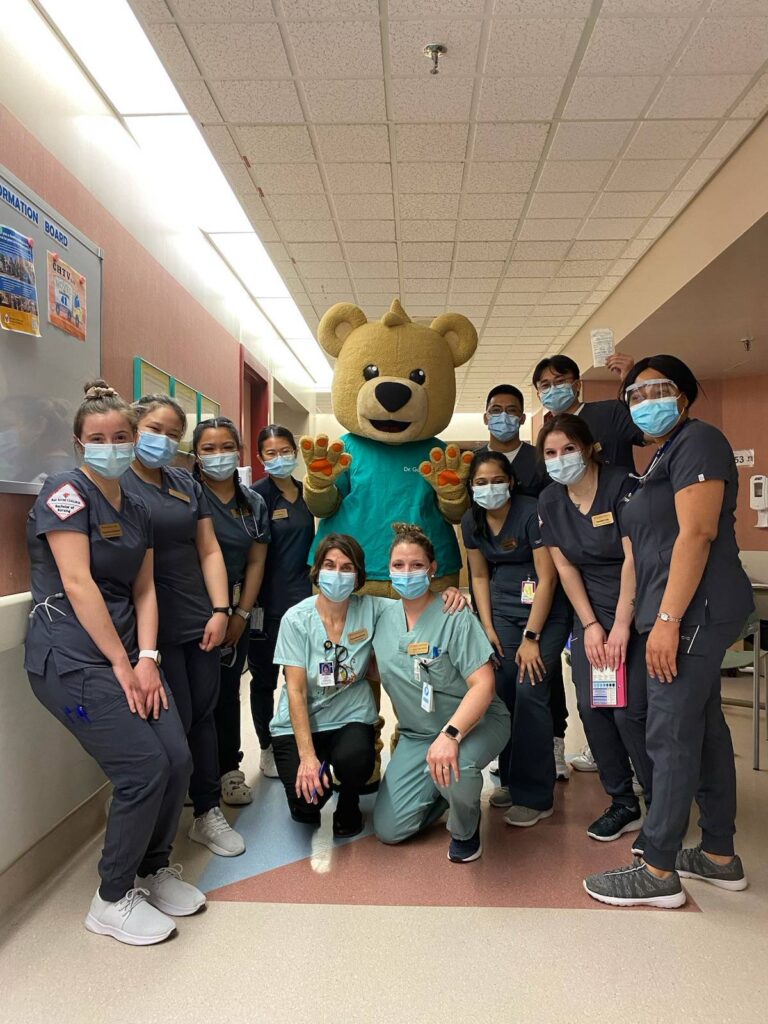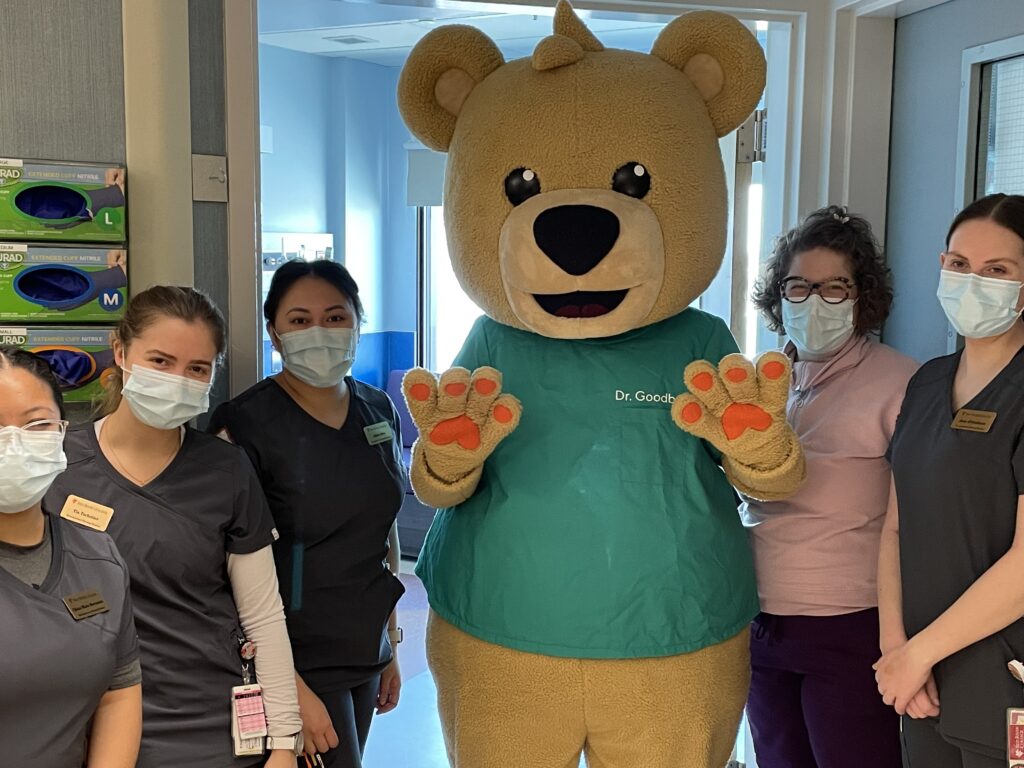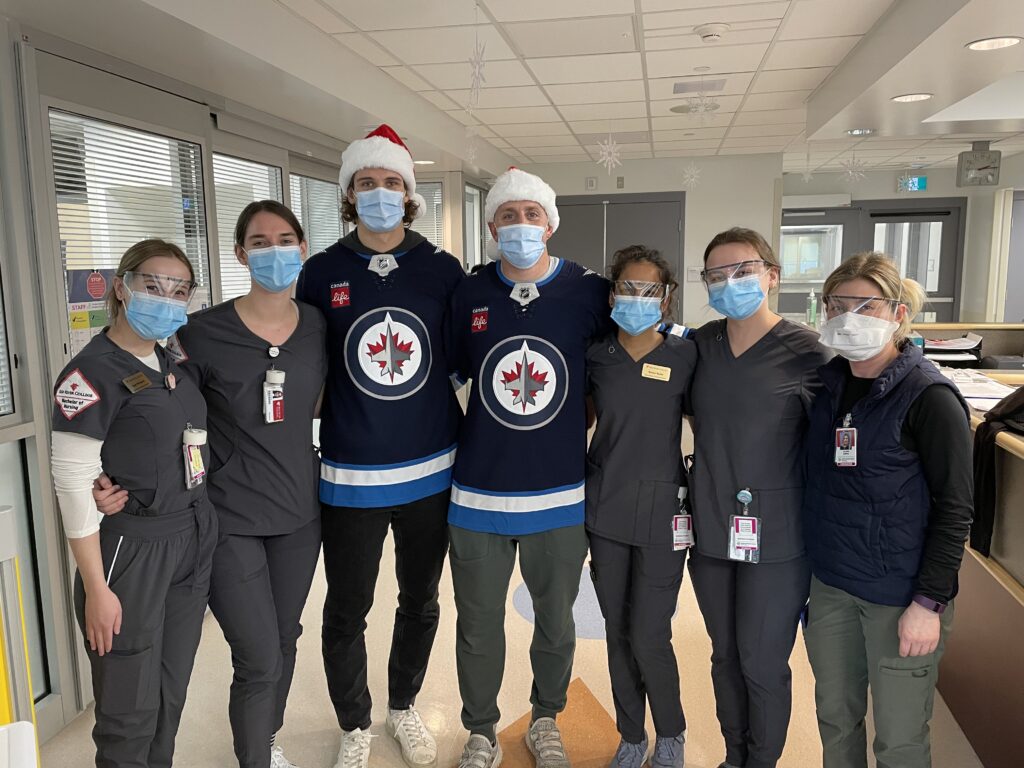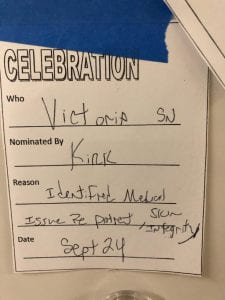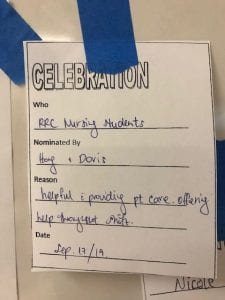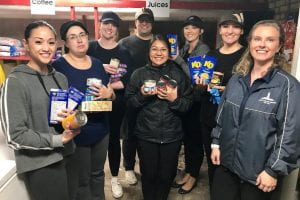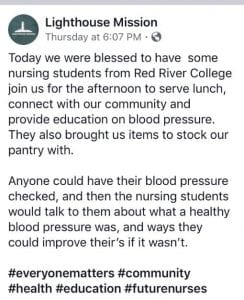Community Health Nursing: Meeting People Where They Are
Nursing students in 3rd year have the opportunity to learn about and apply concepts of community health/social determinants of health to at risk-populations in a variety of community settings. In Clinical Practice: Community Health, our students develop and provide meaningful Health Promotion presentations for children, youth, or families in order to educate and empower them. Our main clinical site this year was Manitoba Youth Centre, a youth correctional facility with Manitoba Justice. The youth expressed much appreciation for the many health presentations given by students this past year – some groups also received huge “Thank you” cards from the girls and “Teacher Sara”. Please read on to hear one student’s reflection on her experience from Manitoba Youth Centre!
–Tanya Cole RN, BScN – Nursing Instructor
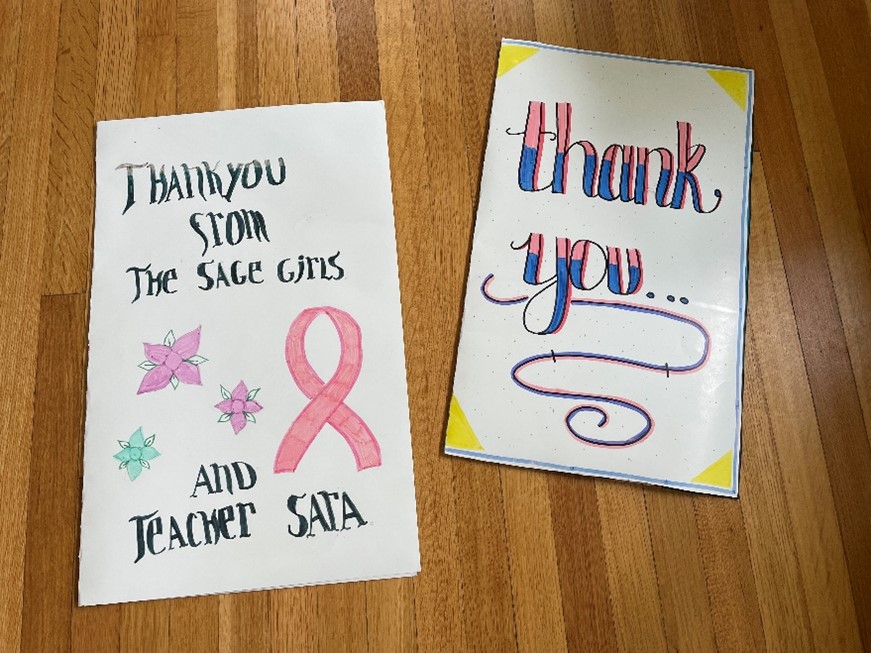
Community health nursing is all about meeting people where they are, and that can mean so many different things. Often that’s very abstract, like where they are in their lives’ journeys, where they are in a disease process, or where they are emotionally, but it can also mean where they literally are – in this case, in a correctional facility. One thing that really struck me about the learning we did at MYC is that we did all of the assessment processes of trying to understand the context that our clients were living in socially, emotionally, physically, spiritually, and economically, but then we also had to actually go to them. I think that’s an important part of community nursing and public health nursing, because so often the people who have the most unmet needs for care or education are the ones who don’t seek it out. If we want to be serious about health equity, it’s our job as healthcare workers to find the people who might not present themselves to us.
Nurses (and student nurses!) have to be ready for unfamiliarity and ready to use any and all tools at our disposal. Sometimes we might be giving our presentation to a small group huddled around a laptop, and if we can be adaptable, we can use these things to our advantage, as we did at MYC. I think even the fact that we had to stand relatively close together and all look at the same small resource made for a very conversational style of presentation and encouraged a remarkable dialog with the participants we presented to. I was humbled by their honesty and engagement.
– Hannah Done [she, her, hers] – Student Nurse (Year 3) – Red River College Polytechnic
